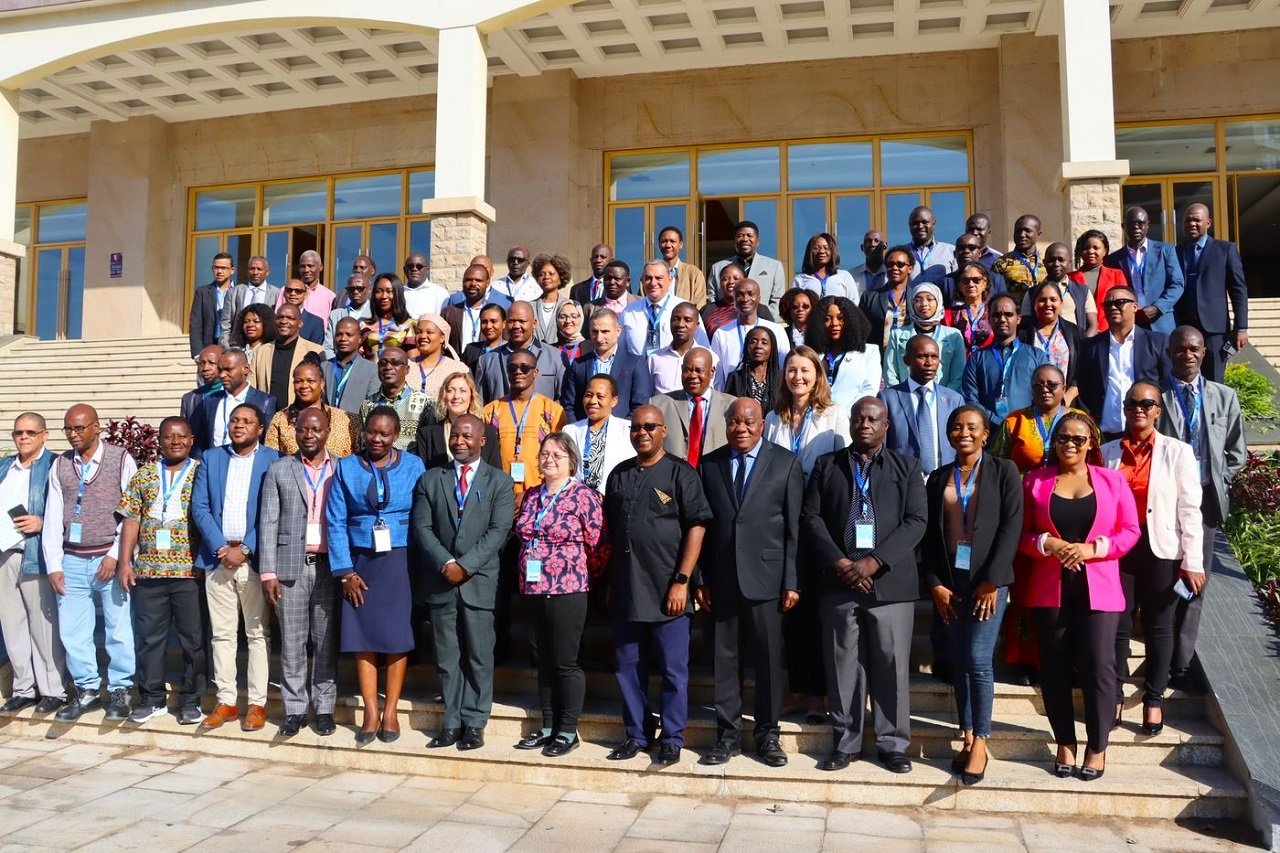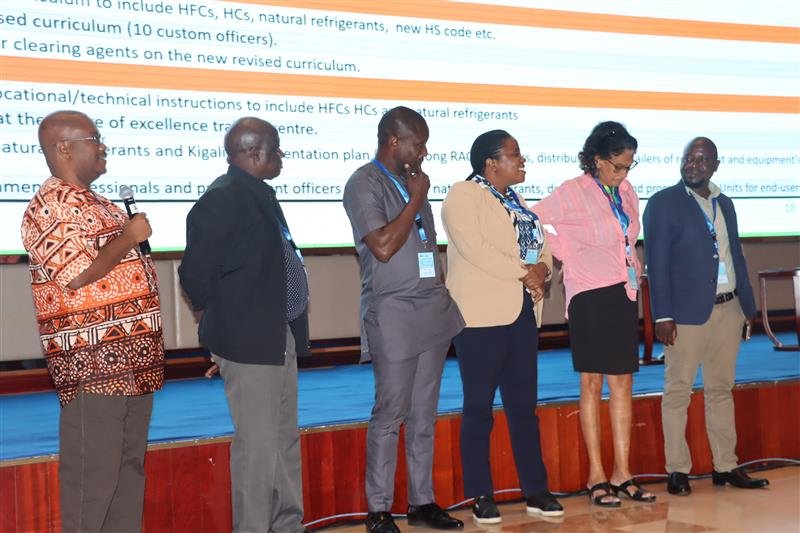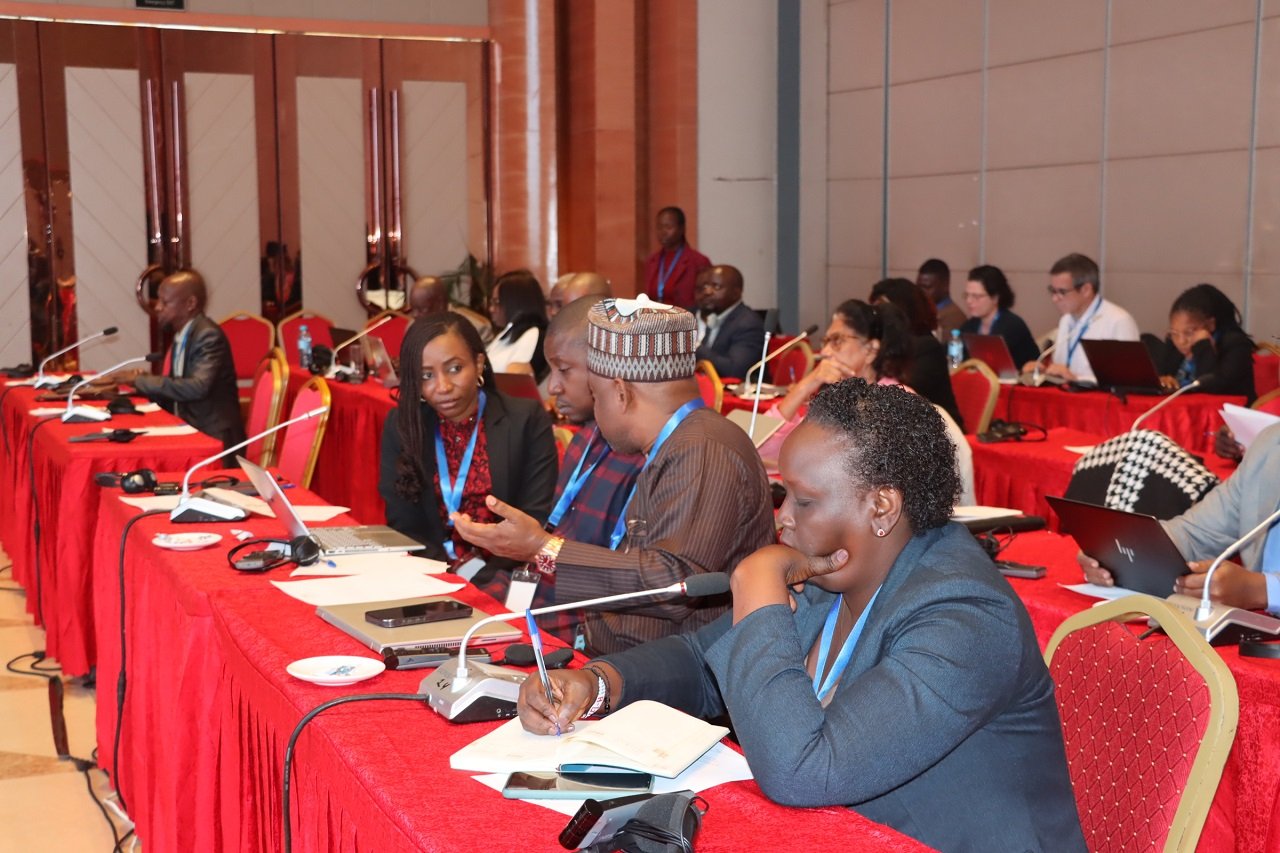UNEP Africa Office gave the opening speech. In his opening statement, Mr Salifu emphasized the critical juncture in efforts to safeguard the ozone layer and reduce the climate impacts of substances controlled by the Montreal Protocol and its Kigali Amendment. He stated, “The Montreal Protocol is one of the key solutions to solving the triple planetary crisis since it contributes to the protection of human health and the environment through ozone protection, climate protection, and by enhancing energy efficiency. Our discussions and collaboration over the next few days will help inform the future of your national and regional strategies and actions. The decisions we make here will have a profound impact on our environment, health, and economies. We at UNEP are proud to continue serving Africa through our Regional Office and in our capacity as an Implementing Agency of the Montreal Protocol's Multilateral Fund.”
Speaking at the opening session, His Excellency Cheronimo R.J. Chivavi, Mozambique's Ambassador to Kenya, warmly welcomed the participants to Maputo. He reaffirmed the country’s commitment to safeguarding the ozone layer and combating climate change. He also emphasized Mozambique's proactive role in environmental preservation and its dedication to international treaties aimed at curbing harmful emissions.
The meeting was officially opened by Mrs. Jadwiga Massinga, the National Director of Climate Change at the Ministry of Land and Environment in Mozambique. Mrs. Massinga underscored the importance of the meeting in the context of Mozambique's ongoing efforts to combat climate change and protect the ozone layer. She stressed the need for continued collaboration and innovation in addressing the environmental challenges posed by hydrofluorocarbons (HFCs).
The meeting focused on the Kigali HFC Phase-down Implementation Plan (KIP) strategy and approach, addressing challenges in hydrochlorofluorocarbons (HCFC) phase-out and HFC phase-down in refrigeration and air-conditioning (RAC) applications. Discussions encompassed the HFC licensing system, data reporting, and gender mainstreaming, exploring ways to integrate gender issues into various aspects of Montreal Protocol implementation.
The meeting concluded with a commitment to ongoing cooperation and the establishment of a robust framework for monitoring progress and sharing knowledge across the region. This commitment is expected to reinforce efforts to mitigate the environmental impact of HFCs and promote sustainable development through improved energy efficiency.
Overall, the meeting marked a significant step forward in the regional effort to phase down HFCs, highlighting the importance of collaboration and shared expertise in addressing global environmental challenges.
Related tags: refrigeration


